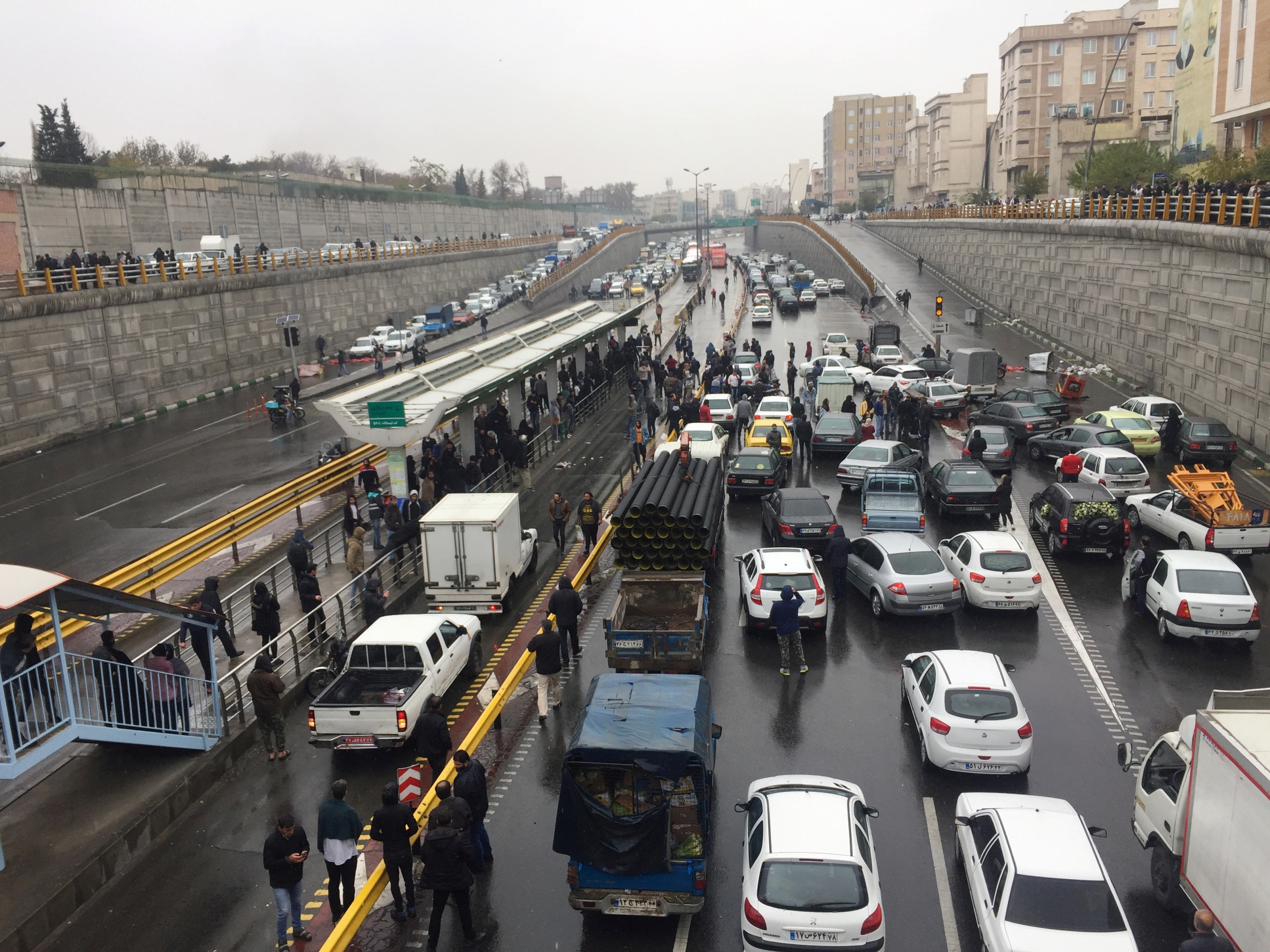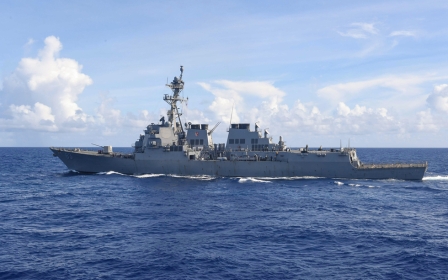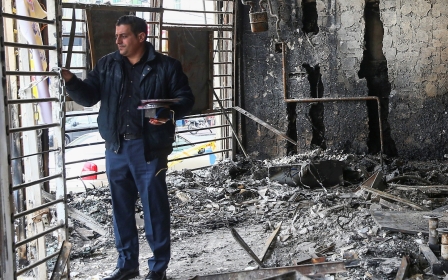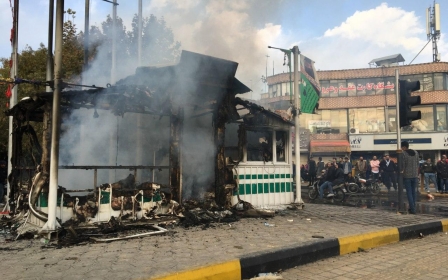Iranian press review: Rouhani criticised by supporters over unrest

Iranian activists and politicians have condemned President Hassan Rouhani's reaction to the biggest protests to have taken place in Iran in decades, which were crushed by a brutal crackdown on protesters two weeks ago.
Reformist and moderate politicians have warned Rouhani that the latest wave of demonstrations indicates that the gap between the government and citizens has been widening since 2017 unrest when people staged protests in 80 cities and towns over poor living standards and were violently quelled.
Iranian legislators have warned that any future wave of protests would cause more damage to the country if the establishment does not find solutions to the current economic crisis.
“After the 2017 unrest, no attempts were made to heal the wounds of that incident, and the demonstrators’ [demands] were not acknowledged,” Parvaneh Salahshouri, a pro-reformist lawmaker, told the Arman daily.
She also rejected the official narratives that labelled the protesters as “rioters and agents of foreign powers”, emphasising that the country’s economic crisis was the main cause behind the unrest.
New MEE newsletter: Jerusalem Dispatch
Sign up to get the latest insights and analysis on Israel-Palestine, alongside Turkey Unpacked and other MEE newsletters
“The officials do not face the economic issues that the ordinary people struggle with, and that is why they cannot understand how angry and annoyed the labourers and marginalised people are,” she added.
Gholamreza Heidary, another lawmaker from the pro-Rouhani block, has expressed “being ashamed” of Rouhani’s policies of abruptly increasing fuel prices and criticised the way the government treated the protesters.
“Innocent people were killed,” Heidary told the Aftab daily. “And official surveys show that unemployment and poverty were the main reasons why the protesters went down to the streets,” he added.
Amnesty International said at least 106 protesters were killed by security forces, making it the worst street unrest in Tehran since the 1979 Islamic revolution.
Lessons learned from world powers
Iran's deputy foreign minister, Abbas Araghchi, said the lesson that Iran has learnt from its negotiations with world powers in 2015, which resulted in a nuclear deal, is that resistance yields better results than collaborating with western states.
"The other lesson is that new sanctions were the result of the nuclear deal and Iran’s commitment to the deal,” Araghchi was quoted as saying by the Javan daily.
The United States last year withdrew from the deal and reimposed crippling sanctions on Iran.
The daily, which is affiliated with Iran’s Islamic Revolutionary Guard Corps (IRGC), has blamed Aragchi and Iran’s negotiating team for “being too late to acknowledge the damage” that the 2015 nuclear deal has caused Iran.
The IRGC and conservative politicians have been the main opponents of the nuclear deal, also known as the Joint Comprehensive Plan of Action (JCPOA). In 2015, Iranian hard-liners warned that the United States was not trustworthy, and there would be no guarantee that western powers would keep the promises they had made in the agreement.
“JCPOA has been a private school for our politicians,” the daily wrote. “A private school that our people have paid the expenses of, its management team – the US and Europe – enjoyed its paybacks, and Araghchi and his friends learned their lessons.”
Residents of Tehran suburbs lament poverty
The demands of the people of Fardis and Malard, two satellite towns of greater Tehran where banks and municipal buildings were looted and torched during the November unrest, featured in the pages of The Iran Newspaper.
Workers, vendors and craftsmen told the daily that most people living in towns around the Iranian capital are migrant labourers from faraway villages and cities where they could not find jobs to make ends meet.
“I used to work in a home appliances company in East Azerbaijan [province], but was laid off after the [2018] sanctions,” a resident of Malard told the paper.
“Now I am a day labourer, waiting on the sidewalk for someone to offer me a job. We are poor and all we want is that someone hears our voices.”
Another labourer told the paper that he had earned no money for four days, explaining that during the wintertime, workers can find work approximately 10 days per month.
“I’ve been waiting here for the past four days, and I’ll do anything that I’ll be asked to - from digging a grave to carrying building materials; but no one with any work offers has shown up,” he said.
“I don’t know how to return home today. I’d rather stay here and freeze from the cold than going back home empty-handed.”
Iran has lowest tax on cigarettes
Iran's deputy health minister has said that a powerful "cigarette mafia" has prevented plans to increase taxes on importing and manufacturing cigarettes in the country.
According to Alireza Raeisi, a 10 percent increase in taxes on cigarettes could provide an annual 200 trillion Iranian rial (about $16.6bn) income for the government, while the revenue from the recent increase in petrol prices will be about $25bn.
“Iran has the cheapest price for the cigarettes and in a time when we cannot buy medicines from other countries, the cigarette mafia is easily importing the products of American firms," Raeisi was quoted as saying by the Khorasan daily.
It is not the first time that an official has spoken about a powerful cigarette "mafia" operating in Iran. In 2017, a surprise reduction in cigarette tax in Iran’s annual budget plan was blamed on lobbying in parliament.
* Iranian press review is a digest of reports that are not independently verified as accurate by Middle East Eye.
Middle East Eye delivers independent and unrivalled coverage and analysis of the Middle East, North Africa and beyond. To learn more about republishing this content and the associated fees, please fill out this form. More about MEE can be found here.




